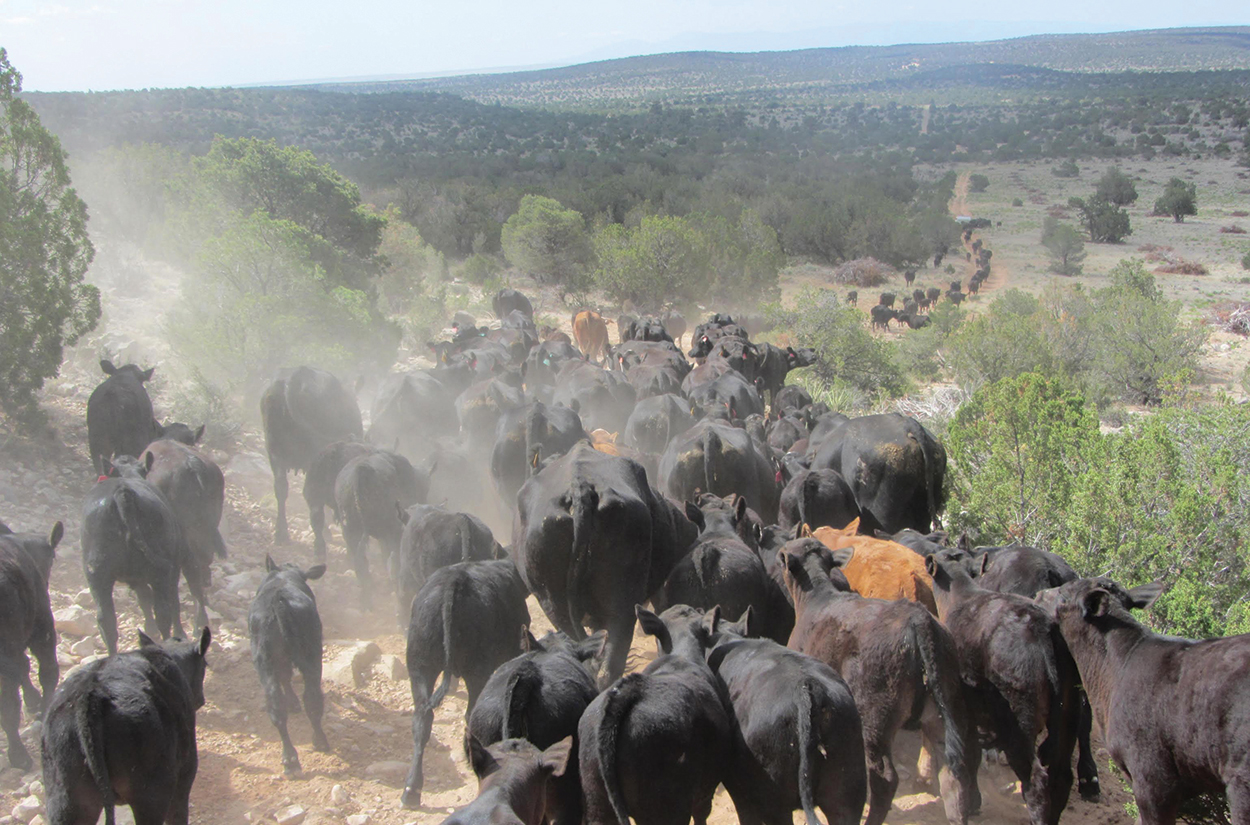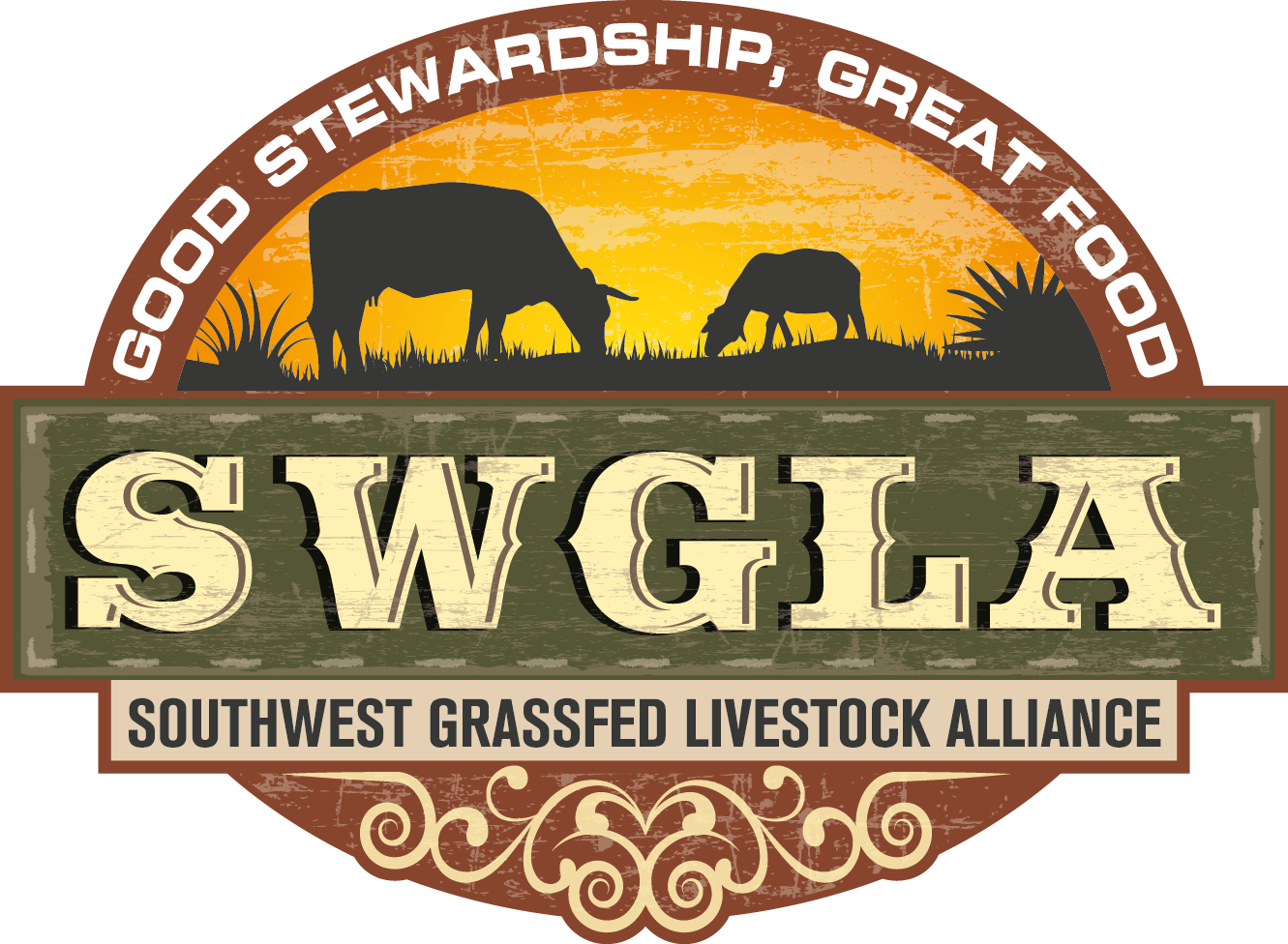Why Grassfed?
Human Health
Scientific studies have shown that grassfed beef is beneficial to humans due to its lower Omega-6 to Omega-3 fatty acid ratio, higher abundance of conjugated linoleic acids (CLAs) and lower risk of E. Coli infection and antibiotic resistant bacteria.
Animal Welfare
Unconfined animals on pasture are healthier and do not need constant antibiotic or other drug administration.
Environmental Protection
Properly managed grazing systems promote soil and ecological function across a wide variety of landscapes. Concentrated animal feeding operations (feedlots) accumulate huge quantities of manure and wastewater that contaminate water supplies, diminish air quality and disable ecosystem function in and around the vicinity of the feedlot.
Climate Change Mitigation
Again, properly managed grazing in rangeland and grassland landscapes promotes ecological function, ultimately creating large sinks for carbon. Monocultures of intensive grain farmed for livestock consumption in confinement in feedlots and the process involved from growing the grain to livestock digesting the grain are major sources of greenhouse gases.
Better Taste and Flavor
Grassfed cattle with genetics that match or are adapted to the landscape where they are raised and produced to high standards tend to result in meat that is well marbled, tender, and very flavorful. Flavor often reflects the forages the animal consumed during the finishing phase of production.


